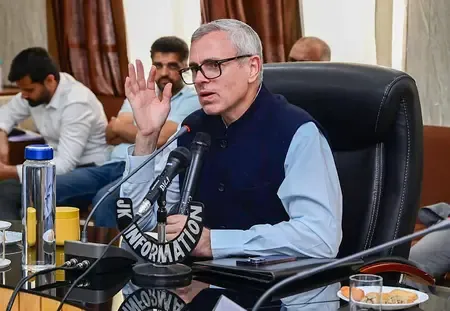Is the Indus Water Treaty Discriminatory Against J&K?

Synopsis
Key Takeaways
- Omar Abdullah firmly opposes the Indus Water Treaty.
- Mehbooba Mufti warns against using water as a weapon.
- The treaty impacts the local population's rights to water.
- Current tensions affect regional peace and stability.
- Political discourse must prioritize the needs of J&K residents.
Srinagar, May 16 (NationPress) The Chief Minister of J&K, Omar Abdullah, expressed his strong disapproval on Friday regarding comments made by PDP President and former Chief Minister Mehbooba Mufti about the Indus Water Treaty (IWT).
Mufti criticized Abdullah's remarks where he labeled the IWT as discriminatory and severely detrimental to the interests of the people of J&K.
She stated, "Omar Abdullah's suggestion to reinstate the Tulbul Navigation Project amidst the ongoing hostilities between India and Pakistan is profoundly regrettable," in a post on the social media platform X.
She continued, "In a period when both nations have just avoided a potential war—resulting in loss of innocent lives and significant suffering in Jammu and Kashmir—such statements are not only reckless but also perilously inciting. Our citizens deserve peace like anyone else in the nation. Utilizing something as vital as water as a weapon is inhumane and jeopardizes what should be a bilateral issue."
In response to Mufti's critiques, Abdullah stated on X, "What is truly unfortunate is your blind ambition to gain cheap publicity and appease certain individuals across the border, which leads you to overlook that the IWT represents one of the greatest historical betrayals of the J&K populace's interests. I have consistently opposed this treaty and will persist in doing so."
He added, "Opposing an overtly unjust treaty is not warmongering; it is about rectifying an historical injustice that has stripped the people of J&K of their right to utilize our water resources."
Despite the ceasefire declaration by India and Pakistan following recent conflicts, Prime Minister Narendra Modi reaffirmed that the IWT will remain suspended, alongside trade with Pakistan.
Modi emphasized that discussions with Pakistan will solely revolve around terrorism and the issue of Pakistan-occupied Jammu and Kashmir (PoJK).










